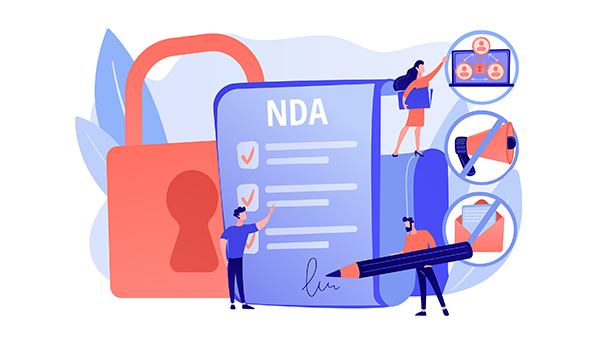Why do whistleblowers report?
Many whistleblowers are motivated by wanting to do the right thing. They see wrongdoing or abuses occurring in their organisation and feel a duty to set things right.
Whistleblowing’s profile has been raised in recent years as a result of scandals such as the LuxLeaks, Panama Papers and Cambridge Analytica, which have all led to greater recognition of the value that whistleblowers provide. Scandals like these have also led to legislation to better protect whistleblowers from reprisals – such as the EU Whistleblowing Directive.
Sometimes, financial rewards are available for whistleblowers. This is most notable in the USA where whistleblowers might be eligible for a bonus from the government for disclosing information relating to fraud and financial misconduct.
What kind of abuses can whistleblowers report?
Whistleblowing reports focus on conduct prohibited by a specific law such as a criminal offence, discrimination or evidence of a cover-up.
Individual country legislation determines if and under what circumstances a whistleblower receives protection. For example, EU countries have implemented the EU Whistleblowing Directive and this protects whistleblowers if they uncover breaches of EU law such as tax fraud, money laundering or offences relating to public contracts, product and transport safety, environmental protection, public health, and consumer and data protection (although the Directive does encourage its member states to broaden this to include breaches of domestic law too).
In the UK, disclosers are protected if they relate to criminal offences, failure to comply with a legal obligation, miscarriages of justice, threats to people’s health and safety, damage to the environment or any deliberate attempt to cover-up any of the above.
Whistleblowing is different to raising a workplace grievance. A grievance is a matter of personal interest and does not impact on the wider public. However, some companies allow employees to report workplace grievances within their internal whistleblowing hotlines.
Can whistleblowers go public and still be protected?
Generally lawmakers prefer whistleblowers to report misconduct either internally or to a prescribed organisation first. The EU Directive, for example, states that whistleblowers can choose to report an incident internally first within the company or directly to the relevant supervisory authority. If nothing is done in response to such a report, or if the whistleblower has reason to believe that there is a public interest, they can also go directly to the public. They are protected in all of these cases.
What should I consider before I blow the whistle?
You have seen something you wish to disclose. What steps do you need to take to ensure that you raise the issue in the right way and ensure that you are protected at all times? The following section explains how to be a whistleblower while remaining safe.
1. Learn the law to find out what protections are in place
Knowledge is power and whistleblower protection laws are different in each country. The law will inform you how to blow the whistle in the right way – what you can report, how, to whom and by when – and in what circumstances you are protected. While EU member states implemeneted the EU Whistleblowing Directive into their domestic laws, this only guarantees a minimum standard. Individual laws enacted by member states differ. As it has recently left the EU, the UK maintains its own domestic legislation on whistleblower protection.
2. Check company procedure and reporting channels
As a next step, check if your company has its own whistleblowing policy and an internal reporting channel. Unless you have reason to believe otherwise, these are almost certainly the best places to start. A company’s whistleblowing policy should provide clear guidance on the internal whistleblowing process, how to raise a concern, define the types of concerns that can be raised and outline the legal protections or restrictions.
3. Consider remaining anonymous
In many jurisdictions, companies have a duty to keep the identity of their whistleblowers confidential. However, whistleblowers can in many cases, choose to remain anonymous, even to the person responsible for handling their case. Some companies have digital whistleblowing systems which encrypt messages that pass between the whistleblower and case handler, allowing the whistleblower to stay truly anonymous but also enabling follow-up communication.
4. Avoid turning investigator
It is a whistleblower’s job to report, not investigate. Stick to the hard facts. Do not exaggerate and do not make unfounded accusations which can, if your report goes to investigation or tribunal stage and is not upheld, lead to the other side claiming that you are untrustworthy. Furthermore, any investigations conducted by the whistleblower could succeed in tipping off suspects and undermine any subsequent internal investigation.
5. Escalate if needed – but beware of the implications
There are many reasons why it is advantageous for both whistleblower and company to keep matters internal. However, if no action is taken by your company, or if you suspect a cover up, then it’s ok to escalate your concerns. If you suffer reprisals as a result, you may need to consider taking independent legal advice or contact a support organisation which can help. Just be aware that this road is a long one – stamina and a support network are a must, and you may need to call on additional financial resources along the way.
Where do I turn if I need support?
Perhaps you have questions regarding the law, or as a result of your report you are facing unfair treatment and reprisals. Who can you contact for support? We have collected a list of organisations that can support you.
Have we forgotten any? Send us an email at contact[at]eqs.com.
Europe
Czech Republic
Estonia
France
La Maison des Lanceurs d’Alerte and Alertes.me
Germany
Ireland
Transparency International Ireland
Italy
Transparency International Italia
Serbia
UK
Protect and ACAS (free, impartial advice on workplace rights, rules and best practice)
North & Central America
South America
Africa
Asia
India
Commonwealth Human Rights Initiative
Japan
Information Clearinghouse Japan
South Korea
Transparency International Korea









